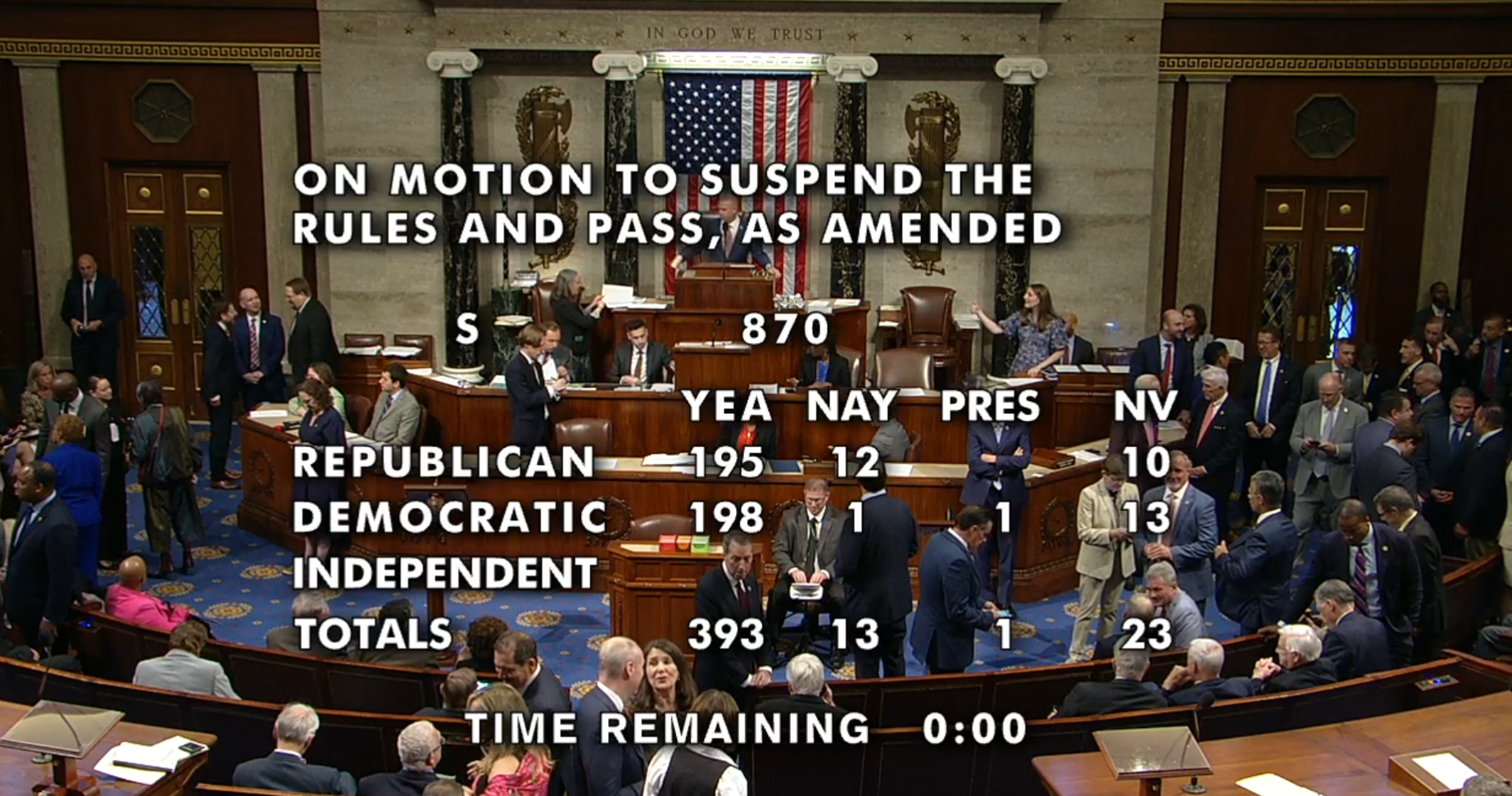
The House on Wednesday evening passed a bipartisan, bicameral package of nuclear-energy reforms, leaving the bill only a Senate concurrence away from the President’s desk.
The Fire Grants and Safety Act of 2023, which includes the compromise version of the Accelerating Deployment of Versatile, Advanced Nuclear for Clean Energy (ADVANCE) Act, passed 393-13 on Wednesday evening.
Twenty-three lawmakers sat out the vote, 10 Republicans and 13 Democrats and one voted present, Rep. Rashida Tlaib (D-Mich.).
Even including those who voted against the bill or did not support it, the measure passed with the support of 90% of the House of Representatives. All but one of the no votes were Republicans.
The White House had not issued a statement of administration policy about the bill as of Tuesday afternoon. Such statements can take the form of outright veto threats, suggestions to alter a bill, or an unqualified endorsement of the bill.
The ADVANCE Act originated in the Senate and the previous version of the proposal was included with the 2024 defense authorization bill by a unanimous vote. House lawmakers stripped that version of the proposal out of the defense bill, and countered with their own package of nuclear reforms that passed easily in February.
However, with the presidential election and other legislative business threatening to sap Congress’ attention, proponents of nuclear energy on Capitol Hill looked for a vehicle to speed the nuclear reforms through Congress. They found it in the fire bill, which the Senate has already approved.
Among other things, the compromise nuclear policy proposals in the fire bill would:
- Require biennial reports, by Jan. 1, 2026, from the Department of Energy on the U.S. nuclear-waste inventory and the associated federal financial liability.
- Mandate that the Nuclear Regulatory Commission assess every three years whether the agency uses “the most efficient metrics and schedules” to issue licenses.
- Require that the NRC’s licensing of nuclear power plants “does not unnecessarily limit” either “the civilian use of radioactive materials” or “the benefits of civilian use of radioactive materials and nuclear energy technology to society.”
- Allow the NRC commissioner to appoint qualified people to temporary jobs with four-year terms and to broadly address insufficient employee compensation at the civilian nuclear regulator.
- Require the Department of Energy, within one year of the bill’s passage, to study the global civilian nuclear industry and tell Congress how U.S. allies are deploying or planning to deploy nuclear energy.
- Require the Nuclear Regulatory Commission to report to Congress, no later than a year after the bill becomes law, about “any engagement between the Commission and the Government of Canada with respect to nuclear waste issues in the Great Lakes Basin.”